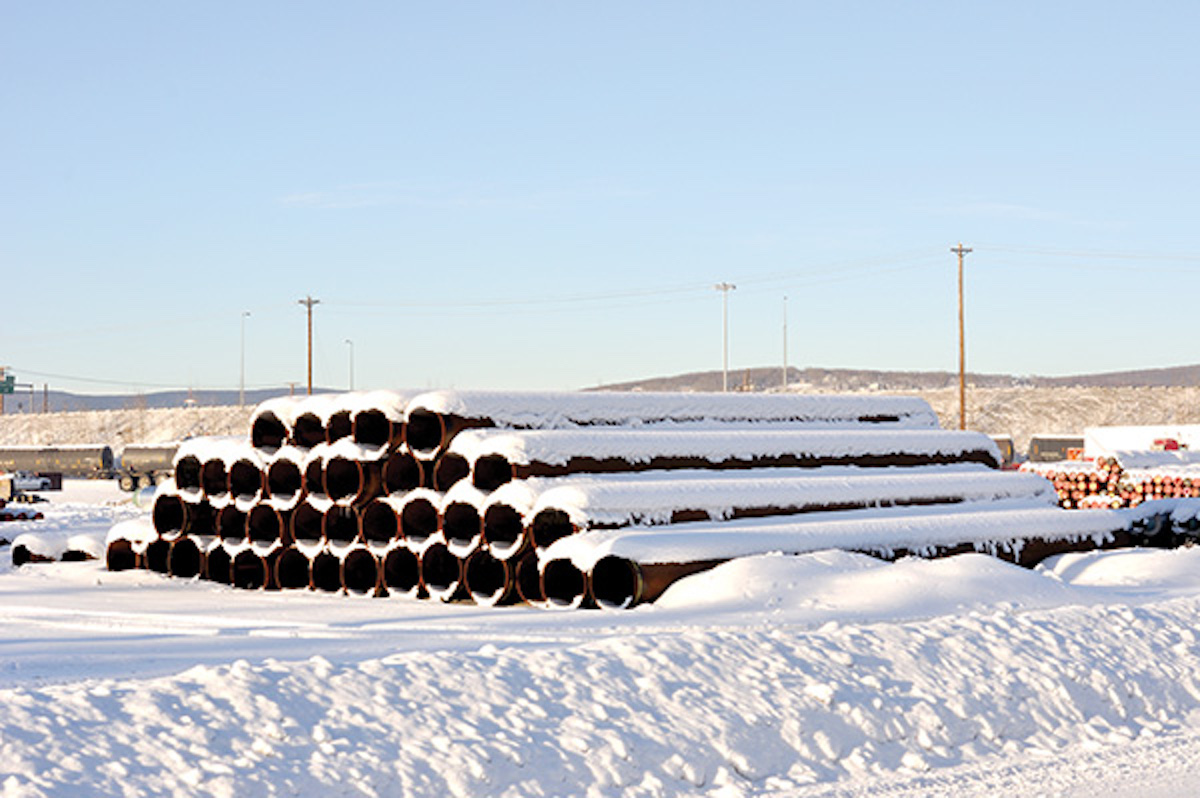U.S. Natural Gas Demand Soars as Arctic Blast Hits Supply, Sparks Conservation Urgency
(Reuters) — U.S. natural gas supplies fell to near a 13-month low on Monday as an Arctic blast across much of the country froze wells, while demand for the fuel for heating and power generation was set to hit a record high on Tuesday.
In Texas, meanwhile, the state's power grid operator, the Electric Reliability Council of Texas (ERCOT), reduced its peak demand forecast for Tuesday and now expects to have enough generating supplies to meet sky-high demand due in part to energy conservation efforts by homes and businesses.
Earlier in the week, before the grid operator called on customers to conserve energy, ERCOT had been forecasting that demand for power could exceed supplies during peak demand hours on Tuesday.
Extreme weather is a reminder of the 2021 February freeze that left millions in Texas and other states in the central U.S. without power, water and heat for days and resulted in more than 200 deaths.
During the February freeze, ERCOT used rotating outages to prevent a grid collapse after an unusually large amount of generation shut due in part to a lack of fuel.
Financial firm LSEG said U.S. gas production dropped by 14.9 billion cubic feet per day (Bcf/d) over the past week or so to 92.8 Bcf/d on Monday, its lowest level since December 2022.
Analysts said those output declines were primarily due to freezing oil and gas wells and other equipment, known as freeze-offs in the energy industry.
At the same time that supplies dropped, U.S. gas demand was on track to jump to 170.0 Bcf/d on Tuesday from 159.5 Bcf/d on the Martin Luther King Jr. holiday on Monday, according to LSEG data.
That would top the current all-time high of 162.5 Bcf/d set in December 2022 during a massive winter storm known as Elliott, according to federal energy data from S&P Global Commodities Insights.
One billion cubic feet of gas is enough to fuel about 5 million U.S. homes for a day.
In Texas, ERCOT urged homes and businesses to conserve electricity for a second morning in a row on Tuesday due to continued tight grid conditions from freezing weather, high demand and unseasonably low amounts of wind power.
ERCOT said the grid "avoided emergency operations (on Monday) due to the conservation efforts by Texas residents and businesses, combined with additional grid reliability tools."
Related News
Related News

- Trump Aims to Revive 1,200-Mile Keystone XL Pipeline Despite Major Challenges
- Valero Considers All Options, Including Sale, for California Refineries Amid Regulatory Pressure
- ConocoPhillips Eyes Sale of $1 Billion Permian Assets Amid Marathon Acquisition
- ONEOK Agrees to Sell Interstate Gas Pipelines to DT Midstream for $1.2 Billion
- Energy Transfer Reaches FID on $2.7 Billion, 2.2 Bcf/d Permian Pipeline
- U.S. LNG Export Growth Faces Uncertainty as Trump’s Tariff Proposal Looms, Analysts Say
- Tullow Oil on Track to Deliver $600 Million Free Cash Flow Over Next 2 Years
- Energy Transfer Reaches FID on $2.7 Billion, 2.2 Bcf/d Permian Pipeline
- GOP Lawmakers Slam New York for Blocking $500 Million Pipeline Project
- Texas Oil Company Challenges $250 Million Insurance Collateral Demand for Pipeline, Offshore Operations





Comments